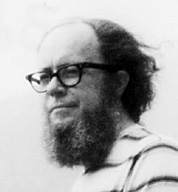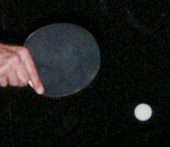|
William McLaughlin
–
mathematician
|

|
"
Success and enjoyment both come from doing what matches your taste and what you deem to be important.
" |

|
| |
|
|
|
| |
How were you motivated to choose your particular field? |
| |
My interest in mathematics has developed in stages, and even now the nature of my regard for this astonishing language is evolving. First, I was attracted by the clarity of proofs contained in the geometry taught in high school and my parents provided strong support for scholastic work. Later, while obtaining a doctorate in mathematics, I saw how vast was the span of this world of reason. In recent times, the effectiveness of mathematics in resolving some very old problems of philosophy has provided a new direction for my interest. (See Resolving Zeno's Paradoxes in the November 1994 issue of Scientific American and Thomson's Lamp is Dysfunctional in the October 1998 issue of the philosophical journal Synthese.)
|
|

|
| |
|
|
|
| |
What can you share about your creative process? |
| |

|
|
It is important to find out what kind of mathematics you best like to do: algebra, analysis, number theory, applications, or something else. Your interests may change as you gain experience. Experiment! Success and enjoyment both come from doing what matches your taste and what you deem to be important. Doing mathematics involves solving problems and creating new mathematics (often these activities overlap), and you should practice each. George Polya was a great teacher, and his little book, How to Solve It, should be read by every aspiring mathematician. To gain a view of progress and challenges in new areas of mathematics, join the Mathematical Association of America and read publications that are suitable to your level of achievement.
http://www.maa.org/pubs/journals.html
In the course of doing mathematics, you will encounter certain items––useful techniques, curious formulas, interesting problems––which have no present use but have caught your attention. Trust your instinct and file them mentally. I think of such items as being hung on mental hooks and ready for use, perhaps years in the future. If, then, you have chosen a congenial mathematical area in which to work and are building an arsenal of effective techniques, it still remains––and this is most important––to have proper work habits. Someone once asked the great mathematician and physicist Isaac Newton how he was able to achieve his phenomenal results. He replied that when he was working on a problem he thought about it all the time. This is crucial. You will not be able to think about your current mathematical problem every waking moment, but always keep it at the "mental ready" and bring it to the front of your mind for attention when waiting in a line, walking, eating, etc. as well as for use in those times formally devoted to research. (Legends of the "absent-minded professor" may have arisen from this habit in the academic community.)
|
|
| |
|
|
|
| |
What ideas do you have for a future human community on Mars?
|
| |
I believe that the greatest challenge facing a community on Mars is justification for its existence in the face of formidable competition from robotic explorers. Rhetorical generalities will not suffice to secure the investment. Part of such a case would be built upon an economic basis, and a new discipline within mathematical economics, focusing upon the Earth–Mars system, calls for development.
|
|

|
|




